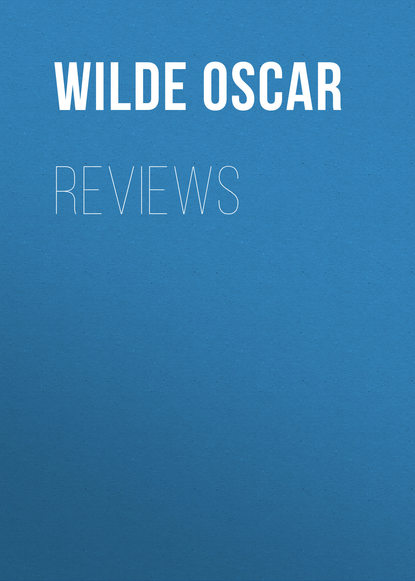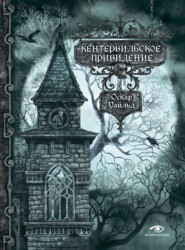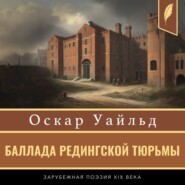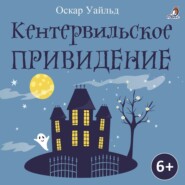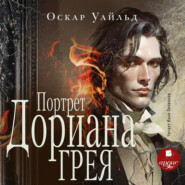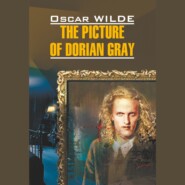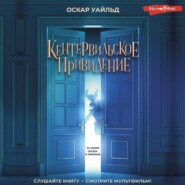По всем вопросам обращайтесь на: info@litportal.ru
(©) 2003-2024.
✖
Reviews
Настройки чтения
Размер шрифта
Высота строк
Поля
GEMMA. Fie! fie! I say. Art thou bewitched?
DANTE. O! peace.
GEMMA. Dost thou deem me deaf and dumb?
DANTE. O! that thou wert.
Dante is certainly rude, but Gemma is dreadful. The play is well meant but it is lumbering and heavy, and the blank verse has absolutely no merit.
Father O’Flynn and Other Irish Lyrics, by Mr. A. P. Graves, is a collection of poems in the style of Lover. Most of them are written in dialect, and, for the benefit of English readers, notes are appended in which the uninitiated are informed that ‘brogue’ means a boot, that ‘mavourneen’ means my dear, and that ‘astore’ is a term of affection. Here is a specimen of Mr. Graves’s work:
‘Have you e’er a new song,
My Limerick Poet,
To help us along
Wid this terrible boat,
Away over to Tork?’
‘Arrah I understand;
For all of your work,
’Twill tighten you, boys,
To cargo that sand
To the overside strand,
Wid the current so strong
Unless you’ve a song —
A song to lighten and brighten you, boys… ’
It is a very dreary production and does not ‘lighten and brighten’ us a bit. The whole volume should be called The Lucubrations of a Stage Irishman.
The anonymous author of The Judgment of the City is a sort of bad Blake. So at least his prelude seems to suggest:
Time, the old viol-player,
For ever thrills his ancient strings
With the flying bow of Fate, and thence
Much discord, but some music, brings.
His ancient strings are truth,
Love, hate, hope, fear;
And his choicest melody
Is the song of the faithful seer.
As he progresses, however, he develops into a kind of inferior Clough and writes heavy hexameters upon modern subjects:
Here for a moment stands in the light at the door of a playhouse,
One who is dignified, masterly, hard in the pride of his station;
Here too, the stateliest of matrons, sour in the pride of her station;
With them their daughter, sad-faced and listless, half-crushed to their likeness.
He has every form of sincerity except the sincerity of the artist, a defect that he shares with most of our popular writers.
(1) Love’s Widowhood and Other Poems. By Alfred Austin. (Macmillan and Co.)
(2) Poems and Translations. By W. J. Linton. (Nimmo.)
(3) Dante: a Dramatic Poem. By Héloïse Durant. (Kegan Paul.)
(4) Father O’Flynn and Other Irish Lyrics. By A. P. Graves. (Swan Sonnenschein and Co.)
(5) The Judgment of the City and Other Poems. (Swan Sonnenschein and Co.)
MR. SWINBURNE’S LAST VOLUME
(Pall Mall Gazette, June 27, 1889.)
Mr. Swinburne once set his age on fire by a volume of very perfect and very poisonous poetry. Then he became revolutionary and pantheistic, and cried out against those that sit in high places both in heaven and on earth. Then he invented Marie Stuart and laid upon us the heavy burden of Bothwell. Then he retired to the nursery and wrote poems about children of a somewhat over-subtle character. He is now extremely patriotic, and manages to combine with his patriotism a strong affection for the Tory party. He has always been a great poet. But he has his limitations, the chief of which is, curiously enough, the entire lack of any sense of limit. His song is nearly always too loud for his subject. His magnificent rhetoric, nowhere more magnificent than in the volume that now lies before us, conceals rather than reveals. It has been said of him, and with truth, that he is a master of language, but with still greater truth it may be said that Language is his master. Words seem to dominate him. Alliteration tyrannises over him. Mere sound often becomes his lord. He is so eloquent that whatever he touches becomes unreal.
Let us turn to the poem on the Armada:
The wings of the south-west wind are widened; the breath of his fervent lips,
More keen than a sword’s edge, fiercer than fire, falls full on the plunging ships.
The pilot is he of the northward flight, their stay and their steersman he;
A helmsman clothed with the tempest, and girdled with strength to constrain the sea.
And the host of them trembles and quails, caught fast in his hand as a bird in the toils;
For the wrath and the joy that fulfil him are mightier than man’s, whom he slays and spoils.
And vainly, with heart divided in sunder, and labour of wavering will,
The lord of their host takes counsel with hope if haply their star shine still.
Somehow we seem to have heard all this before. Does it come from the fact that of all the poets who ever lived Mr. Swinburne is the one who is the most limited in imagery? It must be admitted that he is so. He has wearied us with his monotony. ‘Fire’ and the ‘Sea’ are the two words ever on his lips. We must confess also that this shrill singing – marvellous as it is – leaves us out of breath. Here is a passage from a poem called A Word with the Wind:
Be the sunshine bared or veiled, the sky superb or shrouded,
Still the waters, lax and languid, chafed and foiled,
Keen and thwarted, pale and patient, clothed with fire or clouded,
Vex their heart in vain, or sleep like serpents coiled.
Thee they look for, blind and baffled, wan with wrath and weary,
Blown for ever back by winds that rock the bird:
Winds that seamews breast subdue the sea, and bid the dreary
Waves be weak as hearts made sick with hope deferred.
Let the clarion sound from westward, let the south bear token
How the glories of thy godhead sound and shine:
Bid the land rejoice to see the land-wind’s broad wings broken,
Bid the sea take comfort, bid the world be thine.
Verse of this kind may be justly praised for the sustained strength and vigour of its metrical scheme. Its purely technical excellence is extraordinary. But is it more than an oratorical tour de force? Does it really convey much? Does it charm? Could we return to it again and again with renewed pleasure? We think not. It seems to us empty.
Of course, we must not look to these poems for any revelation of human life. To be at one with the elements seems to be Mr. Swinburne’s aim. He seeks to speak with the breath of wind and wave. The roar of the fire is ever in his ears. He puts his clarion to the lips of Spring and bids her blow, and the Earth wakes from her dreams and tells him her secret. He is the first lyric poet who has tried to make an absolute surrender of his own personality, and he has succeeded. We hear the song, but we never know the singer. We never even get near to him. Out of the thunder and splendour of words he himself says nothing. We have often had man’s interpretation of Nature; now we have Nature’s interpretation of man, and she has curiously little to say. Force and Freedom form her vague message. She deafens us with her clangours.
But Mr. Swinburne is not always riding the whirlwind and calling out of the depths of the sea. Romantic ballads in Border dialect have not lost their fascination for him, and this last volume contains some very splendid examples of this curious artificial kind of poetry. The amount of pleasure one gets out of dialect is a matter entirely of temperament. To say ‘mither’ instead of ‘mother’ seems to many the acme of romance. There are others who are not quite so ready to believe in the pathos of provincialisms. There is, however, no doubt of Mr. Swinburne’s mastery over the form, whether the form be quite legitimate or not. The Weary Wedding has the concentration and colour of a great drama, and the quaintness of its style lends it something of the power of a grotesque. The ballad of The Witch-Mother, a mediæval Medea who slays her children because her lord is faithless, is worth reading on account of its horrible simplicity. The Bride’s Tragedy, with its strange refrain of
In, in, out and in,
Blaws the wind and whirls the whin:
The Jacobite’s Exile—
O lordly flow the Loire and Seine,
DANTE. O! peace.
GEMMA. Dost thou deem me deaf and dumb?
DANTE. O! that thou wert.
Dante is certainly rude, but Gemma is dreadful. The play is well meant but it is lumbering and heavy, and the blank verse has absolutely no merit.
Father O’Flynn and Other Irish Lyrics, by Mr. A. P. Graves, is a collection of poems in the style of Lover. Most of them are written in dialect, and, for the benefit of English readers, notes are appended in which the uninitiated are informed that ‘brogue’ means a boot, that ‘mavourneen’ means my dear, and that ‘astore’ is a term of affection. Here is a specimen of Mr. Graves’s work:
‘Have you e’er a new song,
My Limerick Poet,
To help us along
Wid this terrible boat,
Away over to Tork?’
‘Arrah I understand;
For all of your work,
’Twill tighten you, boys,
To cargo that sand
To the overside strand,
Wid the current so strong
Unless you’ve a song —
A song to lighten and brighten you, boys… ’
It is a very dreary production and does not ‘lighten and brighten’ us a bit. The whole volume should be called The Lucubrations of a Stage Irishman.
The anonymous author of The Judgment of the City is a sort of bad Blake. So at least his prelude seems to suggest:
Time, the old viol-player,
For ever thrills his ancient strings
With the flying bow of Fate, and thence
Much discord, but some music, brings.
His ancient strings are truth,
Love, hate, hope, fear;
And his choicest melody
Is the song of the faithful seer.
As he progresses, however, he develops into a kind of inferior Clough and writes heavy hexameters upon modern subjects:
Here for a moment stands in the light at the door of a playhouse,
One who is dignified, masterly, hard in the pride of his station;
Here too, the stateliest of matrons, sour in the pride of her station;
With them their daughter, sad-faced and listless, half-crushed to their likeness.
He has every form of sincerity except the sincerity of the artist, a defect that he shares with most of our popular writers.
(1) Love’s Widowhood and Other Poems. By Alfred Austin. (Macmillan and Co.)
(2) Poems and Translations. By W. J. Linton. (Nimmo.)
(3) Dante: a Dramatic Poem. By Héloïse Durant. (Kegan Paul.)
(4) Father O’Flynn and Other Irish Lyrics. By A. P. Graves. (Swan Sonnenschein and Co.)
(5) The Judgment of the City and Other Poems. (Swan Sonnenschein and Co.)
MR. SWINBURNE’S LAST VOLUME
(Pall Mall Gazette, June 27, 1889.)
Mr. Swinburne once set his age on fire by a volume of very perfect and very poisonous poetry. Then he became revolutionary and pantheistic, and cried out against those that sit in high places both in heaven and on earth. Then he invented Marie Stuart and laid upon us the heavy burden of Bothwell. Then he retired to the nursery and wrote poems about children of a somewhat over-subtle character. He is now extremely patriotic, and manages to combine with his patriotism a strong affection for the Tory party. He has always been a great poet. But he has his limitations, the chief of which is, curiously enough, the entire lack of any sense of limit. His song is nearly always too loud for his subject. His magnificent rhetoric, nowhere more magnificent than in the volume that now lies before us, conceals rather than reveals. It has been said of him, and with truth, that he is a master of language, but with still greater truth it may be said that Language is his master. Words seem to dominate him. Alliteration tyrannises over him. Mere sound often becomes his lord. He is so eloquent that whatever he touches becomes unreal.
Let us turn to the poem on the Armada:
The wings of the south-west wind are widened; the breath of his fervent lips,
More keen than a sword’s edge, fiercer than fire, falls full on the plunging ships.
The pilot is he of the northward flight, their stay and their steersman he;
A helmsman clothed with the tempest, and girdled with strength to constrain the sea.
And the host of them trembles and quails, caught fast in his hand as a bird in the toils;
For the wrath and the joy that fulfil him are mightier than man’s, whom he slays and spoils.
And vainly, with heart divided in sunder, and labour of wavering will,
The lord of their host takes counsel with hope if haply their star shine still.
Somehow we seem to have heard all this before. Does it come from the fact that of all the poets who ever lived Mr. Swinburne is the one who is the most limited in imagery? It must be admitted that he is so. He has wearied us with his monotony. ‘Fire’ and the ‘Sea’ are the two words ever on his lips. We must confess also that this shrill singing – marvellous as it is – leaves us out of breath. Here is a passage from a poem called A Word with the Wind:
Be the sunshine bared or veiled, the sky superb or shrouded,
Still the waters, lax and languid, chafed and foiled,
Keen and thwarted, pale and patient, clothed with fire or clouded,
Vex their heart in vain, or sleep like serpents coiled.
Thee they look for, blind and baffled, wan with wrath and weary,
Blown for ever back by winds that rock the bird:
Winds that seamews breast subdue the sea, and bid the dreary
Waves be weak as hearts made sick with hope deferred.
Let the clarion sound from westward, let the south bear token
How the glories of thy godhead sound and shine:
Bid the land rejoice to see the land-wind’s broad wings broken,
Bid the sea take comfort, bid the world be thine.
Verse of this kind may be justly praised for the sustained strength and vigour of its metrical scheme. Its purely technical excellence is extraordinary. But is it more than an oratorical tour de force? Does it really convey much? Does it charm? Could we return to it again and again with renewed pleasure? We think not. It seems to us empty.
Of course, we must not look to these poems for any revelation of human life. To be at one with the elements seems to be Mr. Swinburne’s aim. He seeks to speak with the breath of wind and wave. The roar of the fire is ever in his ears. He puts his clarion to the lips of Spring and bids her blow, and the Earth wakes from her dreams and tells him her secret. He is the first lyric poet who has tried to make an absolute surrender of his own personality, and he has succeeded. We hear the song, but we never know the singer. We never even get near to him. Out of the thunder and splendour of words he himself says nothing. We have often had man’s interpretation of Nature; now we have Nature’s interpretation of man, and she has curiously little to say. Force and Freedom form her vague message. She deafens us with her clangours.
But Mr. Swinburne is not always riding the whirlwind and calling out of the depths of the sea. Romantic ballads in Border dialect have not lost their fascination for him, and this last volume contains some very splendid examples of this curious artificial kind of poetry. The amount of pleasure one gets out of dialect is a matter entirely of temperament. To say ‘mither’ instead of ‘mother’ seems to many the acme of romance. There are others who are not quite so ready to believe in the pathos of provincialisms. There is, however, no doubt of Mr. Swinburne’s mastery over the form, whether the form be quite legitimate or not. The Weary Wedding has the concentration and colour of a great drama, and the quaintness of its style lends it something of the power of a grotesque. The ballad of The Witch-Mother, a mediæval Medea who slays her children because her lord is faithless, is worth reading on account of its horrible simplicity. The Bride’s Tragedy, with its strange refrain of
In, in, out and in,
Blaws the wind and whirls the whin:
The Jacobite’s Exile—
O lordly flow the Loire and Seine,





